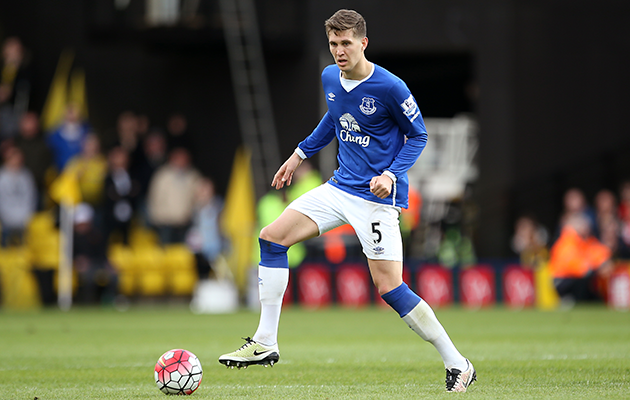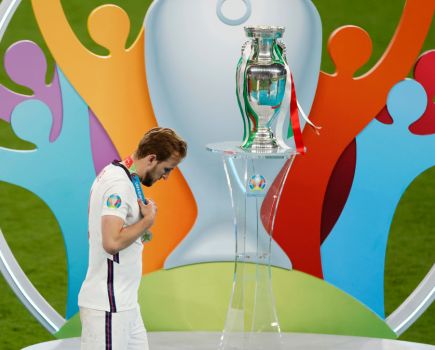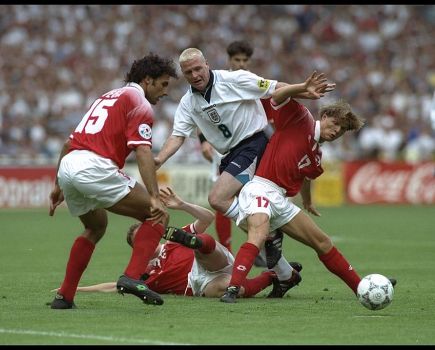England invented the 3rd back, alias the stopper centre half. Who was the first of them? It is generally accepted that it was Arsenal’s Jack Butler, unwillingly pushed back into the role from his usual position of central midfield. This, after the Gunners, under Herbert Chapman, a newly appointed manager, had crashed to a seven goal defeat at Newcastle United.
Yet Charlie Spencer, the Newcastle centre half in those days, once told me that he himself had acted as a stopper on that occasion. (In parenthesis, why is the habit growing of calling a goalkeeper a stopper, when traditionally it has been employed to describe the defensive centre half?).
Under the new disposition – which that famed footballer and later commentator Charlie Buchan told me, that he rather than Chapman invented – the Gunners immediately embarked upon a sustained period of success.
Many years later, after Brazil had won the 1958 World Cup with their 4-2-4 formation, it became customary to play with two central defenders of whom the second, such as Bobby Moore, was essentially a defensive wing half. For all his supreme prowess, Bobby was never at his best in the air.
But fashions would of course change again, with both central defenders being essentially stoppers. Quite why there are so few of them available to Roy Hodgson today is a mystery.
John Stones should have been the answer. He wanted to leave Everton last summer, and Chelsea in their turn wanted him badly. They must now, after his erratic form this season, be relieved that they did not succeed in buying him.
For Stones, alas, for all his natural gifts, has this season been grievously prone to error; for England at Wembley as well as with his club.

Chelsea’s John Terry remains, arguably, England’s best defender.
The irony of it all being that the veteran John Terry, who has been shabbily treated by Chelsea, is still arguably the best English centre back, who might even have been called up had he not previously and disgustedly refused to play again for England, having absurdly been ruled out by David Bernstein, a misguided FA Chairman, before the case against him for alleged racial abuse, had come to trial in Westminster magistrates court; and been thrown out.
The actual dearth of English centre backs is at bottom a mystery since not so long ago in the halcyon days of Rio Ferdinand there seemed to be plenty of them.
One’s mind goes all the way back to 1950 when, to the fury of the then England manager, Walter Winterbottom, the geriatric selection committee, to whom he was then beholden, picked the 38 year old Arsenal centre half Leslie Compton to play. Compton, brother of the illustrious cricketer footballer Denis, had in fact played for England during, and just after the war, but was never awarded a full cap.
Terry has shown a loyalty to Chelsea, for whom he has been that rarest of things, a player developed on the premises, which should have been reciprocated but shamefully hasn’t been.
His tearful address to the adoring crowd after Chelsea’s last game of the season, from which he was suspended, was a notable rarity in the context in these days of the Greed is Good League and its overpaid mercenaries.
That Terry should even contemplate remaining at Stamford Bridge under a shamefully reduced contract, rather than fly off to make millions in China, testified his almost romantic loyalty. It’s not as if Chelsea can even be sure that their central defence can suffice without him.
Of course, he had his unhappy moments, such as missing that penalty in the European Cup Final in Moscow against Manchester United, and getting himself sent off in the Nou Camp against Barcelona for a ridiculous and spiteful foul; though Chelsea hung on to succeed without him.
Overall, however, he has been a resilient and formidable figure in Chelsea’s central defence. If he is sometimes accused of lacking pace, his tactical sense is supreme and he is perhaps above all, a reassuring and positive influence over his fellow, younger, defenders.

Jamie Vardy intends to write his own account of what has been a remarkable career.
Jamie Vardy? I had the pleasure of meeting him (so rare a thing now to meet a footballer when once one knew dozens) at the Football Writers’ dinner.
He told me he himself will write the autobiography of his astonishing career. I think as one who did ghost a couple of them, Cliff Vastin and Jack Kelsey, he’ll need some help.
No, not me.







